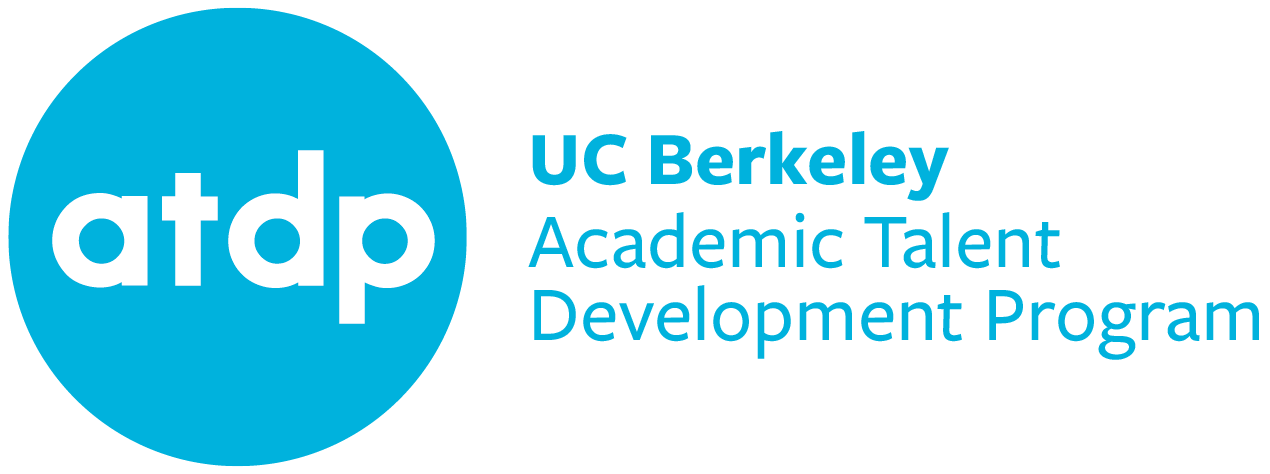If you have applied to ATDP, you may have noticed a statement on the back of the ATDP application form encouraging students and families to participate in research. If you have been a student in the Elementary or Secondary Divisions, you may have received an invitation to participate in a research study. Some of you have participated in surveys on writing and literature or in mathematics problem-solving interviews. Why does ATDP conduct research? What happens to the findings once ATDP research studies are completed? Here is a description of the different ways that ATDP researchers share their research findings with teachers, parents, researchers, and other educators.
National Conferences

Each year ATDP researchers such as myself and ATDP’s Faculty Director Dr. Frank C. Worrell travel to national conferences to present our research findings to other researchers, professors, and educators. We present our research in several different formats including poster displays, roundtable discussions, and formal presentations. In these presentations, we explain how our studies were conducted, what we discovered about student learning and achievement, and how and why our findings are important for research and educational practice.
In the past year Dr. Worrell and I have each presented research at the Annual Convention of the American Psychological Association (APA) in San Diego and the Annual Meeting of the American Educational Research Association in New Orleans. Next month I will return to New Orleans to present a research poster (linked at right) at the Annual Convention of the National Association for Gifted Children. This poster describes a study conducted with Secondary Division mathematics students in which five levels of mathematics giftedness were identified. The poster also gives recommendations to students, parents, and teachers based on the findings of the study.
Journal Publications
Another way that we disseminate ATDP research findings is through academic journals. Articles in academic journals are generally read by researchers and professors who work within a specific academic domain such as education. Articles are also used as teaching resources in undergraduate and graduate level courses. In an academic journal article, researchers describe the purpose of the study, how the study was conducted, what results were found, and why the results are important and meaningful.

This year, Dr. Worrell, Dr. Nina H. Gabelko and I published an ATDP research article in the Journal for Advanced Academics titled, “Predictors of success in accelerated and enrichment mathematics courses for academically talented adolescents.” In this study, which included close to 800 Secondary Division mathematics students, we found that students’ scores on the mathematics placement test were the strongest predictor of their success in ATDP accelerated mathematics courses.
ATDP Workshops and Newsletters
Finally, ATDP research is shared with ATDP instructors, parents, and the larger ATDP community throughout the year. In the spring, ATDP instructors are given pre-service workshops which include a presentation on the latest ATDP research findings and discussions about how instructors can use these research findings to better understand their ATDP students and to improve their ATDP teaching practices. During the summer, ATDP offers Parent Explorations that give parents opportunities to learn about topics related to their students’ learning and achievement that are based in ATDP and other research. In the fall and spring, the ATDP eNewsletters include articles about ATDP’s research findings and what those findings mean for students, parents and teachers. (See our feature on metacognition research in last year’s eNewsletter.)
ATDP research reaches students, parents, teachers, researchers, and other educators both within the ATDP community and throughout the larger national and international education community. We are continuing to ask questions about how students learn and how teachers and parents can support this learning. Students and families play an integral role in ensuring this research can continue, and I encourage you to contribute to ATDP research when there are opportunities to do so.

Adena E. Young was the Interim Director of the Academic Talent Development Program and postdoctoral researcher at the Graduate School of Education.
